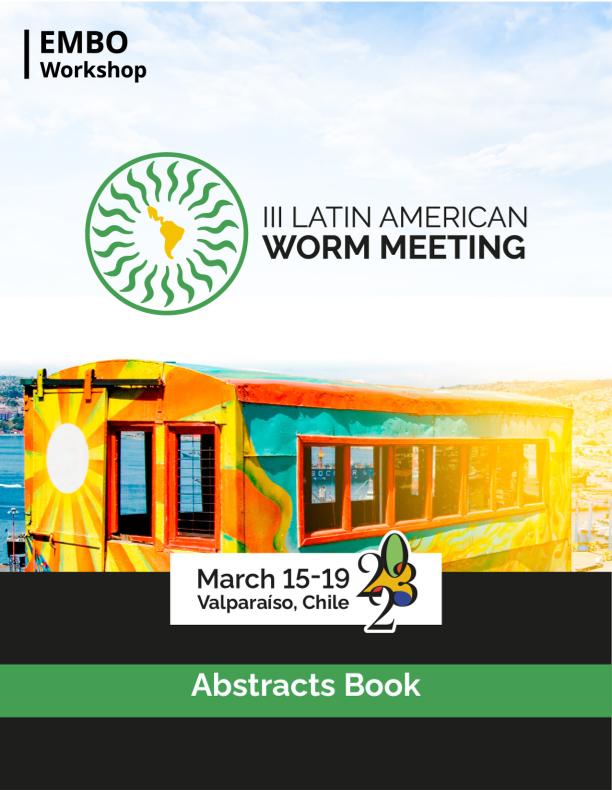Evento
Behavioral state transitions in C. elegans
Tipo del evento:
Reunión
Nombre del evento:
III Latin American Worm Meeting
Fecha del evento:
15/03/2023
Institución Organizadora:
Universidad de Valparaíso;
Centro Interdisciplinario De Neurociencia De Valparaíso;
Título del Libro:
III Latin American Worm Meeting
Editorial:
Universidad de Valparaíso
Idioma:
Inglés
Clasificación temática:
Resumen
Changes in food seeking behaviors are influenced by physiological internal states. During foraging, animals can switch from one state to another, for example, from satiety while feeding to hunger and stress when there is food shortage. Referred to as the “happiness hormone”, serotonin has been related in many animals to modulate feeding in favorable environmental conditions. On the other hand, noradrenaline is the major conserved neurotransmitter implicated in triggering a stress response. In this work, we are interested in how these neurotransmitters interact to modulate the animal`s internal state in behavioral transitions. The complexity of the mammalian brain complicates the study of neuronal processes. The nematode Caenorhabditis elegans is suitable for understanding neuronal signaling because of its simple and well-described nervous system. During a prolonged fasting period, animals decrease their locomotion. We demonstrate that locomotion can be resumed by adding tyramine, the analog of noradrenaline in invertebrates. Interestingly, serotonin produces the opposite effect by reducing locomotion. These results suggest that serotonin acts antagonistically to tyramine. Also, when the environment improves and fasted animals encounter food, they release serotonin to slow their locomotion and promote feeding. We found that this slowing response and the activity of the serotonergic neurons upon food encounter are enhanced in tyramine-deficient mutants. Given that tyramine levels decrease during fasting, we hypothesize that the lack of tyramine upon fasting disinhibits the serotonergic neurons and favors their activity upon refeeding. Considering the conservation of neuronal components, we believe that our results may contribute to the understanding of the nervous control of state dependent foraging strategies
Palabras clave:
Modulación Neuronal
,
C. elegans
,
serotonina
,
tiramina
Archivos asociados
Licencia
Identificadores
Colecciones
Eventos(INIBIBB)
Eventos de INST.DE INVEST.BIOQUIMICAS BAHIA BLANCA (I)
Eventos de INST.DE INVEST.BIOQUIMICAS BAHIA BLANCA (I)
Citación
Behavioral state transitions in C. elegans; III Latin American Worm Meeting; Valaparaíso; Chile; 2023; 26-26
Compartir




